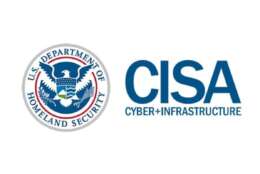Hubbard Radio Washington DC, LLC. All rights reserved. This website is not intended for users located within the European Economic Area.
On Air: Federal News Network
Strategic Threat Intelligence
Sponsored by


She may have left federal government two years ago but Suzanne Spaulding is still very much keeping an eye on the state of agency cyber security. And she sees some good news.
Read moreLa’Naia Jones, deputy chief information officer of the Intelligence Community, said the intel originates from multiple places, such as an agency within the community or one of its centers.
Improving cybersecurity across federal agencies requires staying on top of new and evolving threats. Now, the MITRE Corporation has a new public tool to further that mission.
Anomali provides a framework for gaining a better understanding to inform high-level leaders in making specific decisions.
-
Crowdstrike has a lot to teach about routine system maintenance
The recent Crowdstrike outage has shown everything that can go wrong when doing a simple update.
-
OMB’s new FedRAMP policy takes aim at the pain points
Drew Mykelgard, the deputy federal chief information officer at OMB, said the updated FedRAMP policy pushes for more automation, reciprocity.
-
CISA executive director to depart after three years
Brandon Wales is the second senior leader to depart CISA in recent months. He led many of CISA’s internal and external initiatives over the last three years.
-
Crowdstrike outage: SSA shutters offices, other agency impacts
Here’s what we know about how a global IT outage, sparked by a faulty software update from cybersecurity firm CrowdStrike, is impacting federal agencies.
-
OPM to lift pause on FSAFEDS enrollments in August
FSAFEDS enrollees will also soon have to transition to Login.gov and complete an identity verification to continue accessing their accounts.
-
FedRAMP’s 2 new efforts target long-time vendor frustrations
The cloud security program launched two programs, an agile delivery pilot and a new technical documentation hub, to accelerate cloud authorizations.
-
This company is helping government satellite operators improve awareness of threats in low-earth orbit
An academic course endorsed by the Defense Department and delivered by accelerator company BMNT aims to help science and engineering students develop their idea
-
DHS official details efforts to harmonize cyber incident reporting rules
DHS cyber lead Iranga Kahangama also says the proposed cyber incident reporting rule is not “simply a land grab,” as some criticize it for being overly broad.












